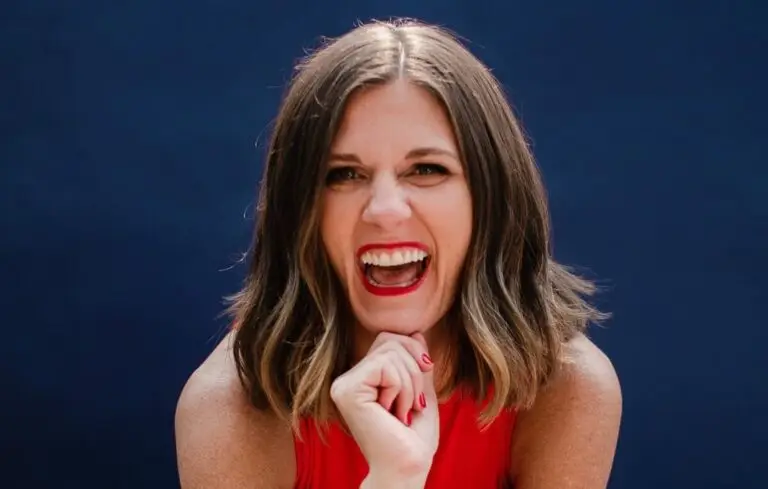The economy is demanding mass customization by manufacturers like never before, and maybe nowhere more than in the tools of foodservice: coffee cups, dinnerware, delivery packages, bar tools, napkins and on and on. Americans’ choices for how to supply their palates are getting more complicated and expectant with every meal and snack that comes along.
Restaurantware Founder and CEO Jamil Bouchareb has been top of this trend nearly from the start and has built a company over 14 years that now manufactures or contracts out more than 10,000 different SKUs for restaurants, institutional foodservice, coffee shops, wineries and other outlets that are trying to satisfy the exploding demand for individualization—or at least quick-turning options—by the American consumer.
And Bouchareb has led with an overlay of sustainability thinking that long has given Restaurantware a differentiated edge and has helped his Chicago-based enterprise reach mid-market status and an accelerated growth mode: Restaurantware plans to increase its product selection by 20 percent-plus this year.
He’s got some advice for other manufacturers that may be trying to keep pace by using the short-run, small-batch approach that is a key to satisfying the mass-customization phenomenon.
“We try to identify a need and test as many products as possible into the market,” Bouchareb told Chief Executive. “We’re unusual. Many companies try to go long and deep into a particular product line. We focus on creating value with selection and broader offerings.”
The margins are better that way, Bouchareb said, compared with a large manufacturer for the foodservice market that may focus on creating profits through volume selling of cups or straws or something else.
“We’ve all been drinking out of [disposable] cups for a long time,” he said, for instance. “But the margins are very tight, and [supplier’s] customers have a lot of leverage over them. Plus, there’s not a whole lot of new technology going on there. I don’t particularly want to compete to supply cups to McDonald’s; if that was such a great business, McDonald’s would be in it themselves. But we’ll make an amazing, custom, luxurious-feeling cup for the Four Seasons [Hotels] or something like that.
“Our approach is to let others fight over pennies and offer something better, best and different to our folks. Our manufacturing capabilities and product-creation capabilities are prolific.”
So, for instance, Restaurantware may create cups and other accessories that promote a limited-time offering by a regional chain of coffee shops. Or create products from substrates such as bamboo and palm leaves that have reputations for sustainability. Or take-out packaging for restaurants that work around the environmental scourge of PFAS, the “forever chemicals” that make paper packaging stiffer and more durable. The company’s vast catalog includes offerings that range from plastic cups to disposable charcuterie boards, from bamboo skewers to bakery packaging.
Here are some of the approaches Bouchareb is using, through his business model and his expansive plans for Restaurantware:
Customer focus. If a customer can imagine a new application, Restaurantware tries to make it, and grow the business by satisfying hundreds of small orders, supported by mass customization.
“If you open a coffee shop tomorrow and you don’t have the budget to place a 100,000 bag order, you can come to us and we can deliver just your need for the week or the month,” he said.
“A problem I see generally out there is a lot of companies, including outside our space, have struggled to focus so much time internally on employees that they’ve lost a customer focus,” said Bouchareb, whose company employs about 160 people in the U.S., India and China. “Our ethos is that as long as we always make the customer happy, in theory all of our employees should be taken care of.”
Flexible sourcing. Asian factories remain the main source of supply for the company’s wares, through its own production, contract manufacturing and joint ventures. There are good reasons for that approach even against the backgrop of massive “reshoring” of much of manufacturing to the U.S.
“We reduce our risk overall and find new products and partners there,” Bouchareb says. “The production of a lot of eco-source materials is moving toward Southeast Asia now. We take advantage of those booming economies, with a vibrant workforce, with great new products coming out of there.”
But last fall, Restaurantware opened its first U.S. factory, in Paso Robles, California. The facility focuses on making customized products in short runs, ranging from limited-time delivery-bag lines to embellished labels for wine bottles. “Our goal over the next several years,” Bouchareb says, “is to get our own manufacturing capability on a par in terms of output with contracted or import partners.”
Environmental pragmatism. While highlighting the company’s sustainable offerings, Bouchareb maintains a practical approach to the demands of Restaurantware’s sustainability positioning. So, for instance, the company has been working on so-called “home compostability” of many of its disposables that make them break down for customers who are having a hard time finding commercial facilities to process their plastic foodservice trash.
“Hotels are putting their own composting facilities in the back or working with local partners to break [trash] down in non-commercial facilities, and have programs to distribute the byproducts to things like schools to use as garden soil,” he explained. “It means this stuff will break down in nature on its own without having to go through a commercial facility…That isn’t available anyway.”
Restaurantware also is working through the regulatory labyrinth that has been created by government agencies that are acting against PFAS. “If you take a to-go soup bowl made out of [paper] pulp, if it has PFAS in it, it’s impossible to break down, and that’s what makes it super sturdy,” Bouchareb said. “If it doesn’t contain PFAS, it’s possible the food could end up on your lap within the hour.”
On the other hand, it can’t be ignored that the use of a disposable coffee cup likely has more impact on the environment than the re-use of a ceramic cup in the office break room. And he’s OK with that.
“There are uses for” wash-and re-use of cups, Bouchareb said, “but America is an economy built on convenience.”








